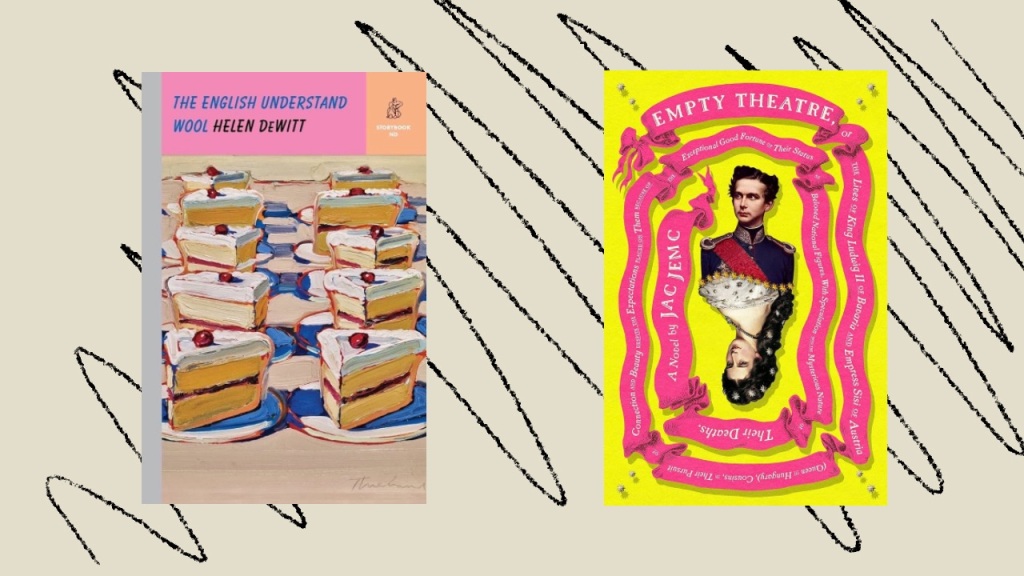Sick as a dog, reading instead of thinking/leaving my house.
The English Understand Wool by Helen DeWitt: I really liked this, and it reflects the reality of publishing — well, many fields, really — and trust/ignorance.
From the publisher:
Raised in Marrakech by a French mother and English father, a 17-year-old girl has learned above all to avoid mauvais ton (“bad taste” loses something in the translation). One should not ask servants to wait on one during Ramadan: they must have paid leave while one spends the holy month abroad. One must play the piano; if staying at Claridge’s, one must regrettably install a Clavinova in the suite, so that the necessary hours of practice will not be inflicted on fellow guests. One should cultivate weavers of tweed in the Outer Hebrides but have the cloth made up in London; one should buy linen in Ireland but have it made up by a Thai seamstress in Paris (whose genius has been supported by purchase of suitable premises). All this and much more she has learned, governed by a parent of ferociously lofty standards. But at 17, during the annual Ramadan travels, she finds all assumptions overturned. Will she be able to fend for herself? Will the dictates of good taste suffice when she must deal, singlehanded, with the sharks of New York?
Empty Theatre by Jac Jemc: I’ve been reading this since late December, and it’s quite a fun ride. Sometimes I got a bit caught up in the dry historical fiction aspect, and then little turns of phrase/character actions would bring me RIGHT back to enjoying it. Amazon calls it a tour de force, I think “tour de farce” is more fitting. Rather than humanize royals of the past, Jemc pushes them straight through humanization into complicated, frivolous portraits. Anti-ideals.
From the publisher:
History knows them as King Ludwig II of Bavaria and Empress Elizabeth of Austria, icons of the late nineteenth century who died young and left behind magnificent portraits and palaces. But to each other they were Ludwig and Sisi, cousins who shared a passion for beauty and a stubborn refusal to submit to the roles imposed upon them.
Ludwig, simultaneously spoiled and punished for his softness and “unmanly” interests, falls hard for the operas of Richard Wagner and neglects his state duties in the pursuit of art. Sisi, married at the age of sixteen to her beloved Franzl, bristles at the restrictions of her elevated position, the value placed on her beauty, and the simultaneous expectation that she ravage her body again and again in childbirth. Both absurdly vain, both traumatized by the demands of their roles, Sisi and Ludwig struggle against the ideals they are expected to embody, and resist through extravagance, petulance, performance, and frivolity.
A tragicomic tour de force, Empty Theatre immerses readers in Ludwig and Sisi’s rarefied, ridiculous, restrictive world―where the aesthetics of excess belie the isolation of its inhabitants. With wit, pathos, and imagination, Jac Jemc takes us on an unforgettable journey through two extraordinary parallel lives and the complex, tenuous friendship that links them
